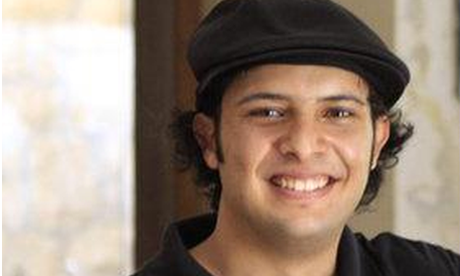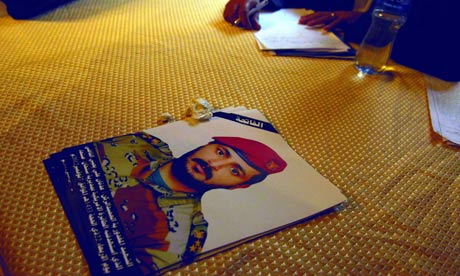A continuing series of articles written for publication on Drone Free Zone in cooperation with PsychoBusters, a coordinated project carried out to awaken the public to the reality of those presently providing contracting services and products to the military and governmental agencies.
by Melinda Pillsbury-Foster
Around January 21st 1998 a meeting, or series of meetings, took place at Green Hills Software, Inc., between Dan O'Dowd and Glenn Hightower. The meeting included on their agenda approval of a false stock option agreement to replace the award of shares made to Craig Franklin in 1996.
This was
the final step Dan needed to take before exercising the sudden
death
partnership agreement between himself and Hightower, who had
provided
the original funding which allowed Green Hills to open its doors
in
1982. More
on
Hightower
Dan had
cut
a deal with Franklin, agreeing to help him evade
characterization of
the stock award as marital property in exchange for Franklin's
assistance to prevent Hightower from exercising his right to buy
out
the company for 47 million, far less than the approximately 350
million it was actually worth.
Franklin's
wife, Melinda, had no idea her husband was divorcing her, though
later she would find out he had filed the day he returned from
their
Hawaiian vacation with the entire family of six children on
January
1st.
It was planned not as a divorce but as take-no-prisoners war.
Melinda
had
every reason to believe their marriage was stable. The previous
year
she had saved Craig from the tax disaster his non-filing of
returns
had caused. He had, in fact, never filed until Melinda forced
the
issue the previous year when she discovered the reason they were
bankrupt was Franklin's non-filing.
Other
things she did not know came very close to killing her and the
couple's son, Arthur. More
Hightower
found out about the plan just after the meeting during which he
was
persuaded to sign off on Franklin's new share agreement. Dan
informed
him the sudden death partnership agreement had been exercised.
Shocked,
Hightower returned to Pasadena and began to make arrangements to
raise the capital. This, he believed, would not be difficult for
him.
He had started and still owned other companies. He was wrong
only
because he did not know Craig was to persuade the other vice
presidents and critical employees to agree to walk out if he
owned
Green Hills. Craig did just this the next summer. When the due
diligence team came to Green Hills a walk-out occurred. Lavish
promises of additional stock and other benefits had been made to
the
senior personnel. Not all promises were kept, but after the fact
there was little they could do about it.
Over the
next nearly two years the outcome of the Hightower buyout
remained in
question because Glenn, outraged by Dan's manipulations, which
had
begun with an restraining order keeping him from making contact
with
employees, filed a law suit after the orchestrated walk out. Law
suit,
Exhibit 7 “Morgan
Pillsbury
– Franklin Transcript”
Dan, who
has all of the human skills of a piranha, evidently finally
realized
he needed someone to create a more human face for the
corporation.
Since Dan hoped to take Green Hills public this should also be
someone with an impressive corporate resume able to make
affirmative
introductions to potentially useful board members, essential to
acquiring credibility.
And thus
entered a new member for the GHS Team.
John B.
Douglas III, Unlikely Addition to the Green Hills Team
Douglas
Bio
from Green
Hills
Site
“Jack
Douglas, Vice Chairman, joined Green Hills Software in 2003,
after
having worked with the company in a consulting capacity since
1998.
Mr. Douglas was Senior Vice President and General Counsel at
Millennium Pharmaceuticals, Inc. from 1999 to 2003.
Previously, he
was Senior Vice President and General Counsel at Apple
Computer where
he played a key role in restoring Apple to financial health.
From
1986 to 1997 Mr. Douglas held senior executive positions at
Reebok
International Ltd, helping Reebok grow to over $3 billion in
revenue,
and ending as Executive Vice President responsible for Legal,
Human
Resources, and Public Affairs. Mr. Douglas received his law
degree,
from Harvard Law School in 1978, and an BA in Economics, from
Colgate
University in 1975.”
Douglas'
association with Green Hills Software actually began
simultaneous
with the time Dan was feverishly working to ensure he had the
47
million locked down to buy Green Hills himself. Reading the
various
and carefully worded resumes which abound on the Internet for
Jack
you find this phrasing at Bloomberg
Business Week.
“Mr. Jack Douglas
has
been Vice Chairman at Green Hills Software since April 2003.
Mr.
Douglas served as Chief Executive Officer to obtain multiple
forms of
debt and equity financing and on other strategic initiatives.
Mr.
Douglas also acts as a key advisor to other growing companies.
”
Chief
Executive Officer of what, Green Hills Software, during the time
they
were attempting to go public? Of course, it could be a
mis-statement
by an online site which was perpetuated through reposting. But
there
are other indications money was tight during the period of 1998
–
2003 when Green Hills became a government contractor.
Dan
borrowed a million dollars from Dr. Carl Franklin, Craig's
father,
supposedly to pay for Craig's stock options. It would have
seemed
reasonable for Craig to then use the generous dividends being
paid
from 1998 on to repay this, but evidently this did not happen.
The
money was extracted from Dan. Craig never repays loans since he
has
better uses for the money. This has been true his entire life,
with
only a few exceptions.
This
'loan,' for what ever reason it was made, was not repaid when
expected and only firm action on the part of Dr. Franklin's
other two
sons, Sterling and Larry, both attorneys, resulted in extracting
the
money from Dan.
Someone
with Jack's qualifications must have seemed like a dream come
true
for Dan at the time because along with Jack's connections he
also
brought a far more normal personal manner than either Dan or
Craig
had to offer as officers of the company.
Also,
there was Dan, strapped for money, with Hightower suing and only
Craig to provide him with comfort and ideas.
Craig
at this time, late 1998 through 1999, had became obsessed with
having
a hit man kill his wife, according to affidavits given later
by those
talking to him every day. (Affidavit,
Middle
of Page 2) This came about because Melinda was, like
Hightower, not following the carefully scripted plan he and
Dan had
laid out. She was supposed to die during the divorce from her
heart
condition, as Hightower was supposed to just go away.
Therefore, it
is doubtful Dan found their daily lunches together very
comforting.
Craig's public rantings probably made Dan, who is far more
cautious,
uneasy.
Craig Franklin
Jack Douglas
Craig
looks far more normal here than he actually is. Despite
appearances,
he is highly intelligent with an I. Q. of 180, making him
smarter
than Einstein.
Jack
not only looks normal, he looks charming, sophisticated, and
intelligent. His resume, which includes his graduation, summa
cum
laude from Harvard Law, speaks for itself. Jack could be
depended on
not to shock potential investors with his table manners, too, an
iffy
proposition with Craig.
Additionally,
Jack's masterful analysis for running an in-house division for
corporate counsel, “The Reebok Rules,” is filled with
sage
advice, some of which Jack might have found useful himself.
Now,
what motivated John B. (Jack) Douglas III, to go to work at
Green
Hills, besides money? Jack had received stock when he was
working for
Apple and, presumably, his income from the stellar corporations,
including Reebok, where he held senior executive positions , “helping
Reebok grow to over $3 billion in revenue,” also
provided substantial remuneration, as did Millennium
Pharmaceuticals,
Inc.
Each
of these jobs seems to have grown shorter in duration. Jack was
at
Reebok for ten years, the others for far shorter periods,
compressed
into the time he had also assumed a consulting role with Green
Hills.
By
all reports, if they are to be believed, it was not any problem
with
his professional performance which caused him to move on. That
leaves
personal considerations and, of late, we have had indications
all was
not normal with Jack's personal life.
On
April 17th
Jack
was arrested for committing an act of, “Lewdness, open and
gross, c
272 s16 (272/16)” in plain sight of a family seated for a meal
at
the Olive Garden Restaurant in Taunton, Massachusetts. The
father of
the children, an off duty police officer immediately
confronted Jack,
this leading to his arrest and arraignment. The event took
place at
3:49pm. The facts are recounted in the POLICE
REPORT.
Evidently,
Jack is an exhibitionist, a form of sexual perversion, “known
by several names including: flashing, apodysophilia, and
Lady Godiva
syndrome, according to Thrive
Boston.
In some cases an exhibitionist will masturbate while exposing him or herself.”
The first
part of this accords with Jack's reported activity.
The condition is reported to be
treatable
and treatment programs are available which lower the rate of
recidivism to 'rare.' Today Jack is entering his sixties,
however,
making him somewhat unusual for an exhibitionist.
It is therefore unlikely the incident
in
Taunton was the first time Jack exhibited himself, raising the
possibility his changes in employment and frequent changes of
address
are not unrelated to this condition.
It
is conceivable Green Hills provided a safe harbor for Jack
because
events in his personal life had overcome him. By leaving
Millennium
and 'hiring on' at Green Hills he could continue to live in
Massachusetts and still have an active professional profile,
even if
it was one which radically changed his previous, far more
prestigious, trajectory.
Also,
he did not actually have to live in Santa Barbara and see very
much
of Dan and Craig but he knew, through his interactions with
them,
beginning in 1998, the company would cover for him if questions
about
his personal life were raised. Dan had certainly provided this
service to Craig, who was guilty of raping women in his office
during
working hours, to say nothing of his after hours activities.
And,
given the arrest cited above, it is very likely he knew it would
be
well to have an understanding and helpful employer.
Despite
not inconsiderable research on the web there is actually very
little
to be found about Jack's personal life. Those with which he is
associated are better understood as extensions of his
professional
life.
Unlike
his fellow Team members Jeff Hazarian and Jason Issacs, he
appears to
be uninvolved in his local community in any not-for-profit
organization. Hazarian and Issacs both joined Green Hills after
the
events of 1998 and are in stable marriages. Hazarian is very
active
in his church. Issacs and his wife contribute and participate in
local charities, which other members of the GHS management team,
do
not appear to do.
In
effect, Dan provided a sanctuary for those employees inclined to
engage in personally unethical behavior. This became a perk of
employment, where it obtained the services of individuals who
otherwise would not have tolerated his unwillingness to share
profits
and a business strategy which included providing weapons used to
commit human rights violations around the world.
Dan
and Craig – Psychopathic.
Dave
Kleidermacher and Dave Chandler – Caught by greed and their
complicity in Dan's 1998 fraud.
Jack
– Sexually Deviant, needs assistance in finding an effective
treatment program.
Chris
Smith – Unknown.
Tim
Reed – Cal Tech graduate, still researching.
Jeff
and Jason – Tolerant of the corporate culture which financially
benefits them.
Next:
The
genocides of the 20th Century and how they link to
America's present wars.














